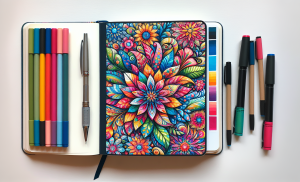How Do Stress Management Techniques Differ For Introverts And Extroverts?
Stress affects everyone, but did you know that how introverts and extroverts handle stress can be quite different? In this article, we will explore the varying ways in which stress management techniques can differ for these two personality types. Whether you are an introvert who thrives on solitude and deep reflection, or an extrovert who seeks social interaction to recharge, understanding how to effectively manage stress based on your personality can greatly improve your overall well-being. So let’s dive in and discover the unique approaches introverts and extroverts can take when it comes to managing stress!
Introverted vs Extroverted Personality Traits
Introverted and extroverted personality traits are two distinct ways of experiencing and interacting with the world. While introverts are typically more reserved and enjoy spending time alone, extroverts thrive on social interactions and seek out external stimulation. Understanding these personality types can help us better understand how stress affects each group and how they can effectively manage it.
Introvert Traits
Introverts often find solace and energy in solitude and introspection. They tend to be more thoughtful and internalize their experiences. They feel drained by prolonged social interactions and may require more time alone to recharge. Introverts are known for their reflective nature, deep thinking, and ability to focus on tasks for extended periods.
Extrovert Traits
Extroverts, on the other hand, gain energy and excitement from being around others. They thrive in social settings and often seek out opportunities for interaction and stimulation. Extroverts are known for their outgoing nature, ability to think on their feet, and love for engaging in conversations. They can become restless and bored when they spend too much time alone.
Understanding Stress
Stress is a common phenomenon that affects individuals regardless of their personality type. However, how introverts and extroverts experience and respond to stress may differ due to their inherent traits and tendencies. It is crucial to understand the nature of stress before exploring effective management techniques for introverts and extroverts.
Definition of Stress
Stress is the body’s response to external pressures or demands, often resulting in physical, mental, or emotional strain. It can be triggered by various factors, such as work-related challenges, relationship difficulties, financial burdens, or major life changes. Stress can manifest in different ways and impact individuals differently.
Causes of Stress
The causes of stress can vary from person to person. Introverts may experience stress when subjected to excessive social interactions, overpowering environments, or situations that demand excessive extroverted behavior from them. Extroverts, on the other hand, may feel stressed when they lack social interaction, are confined in dull environments, or face limited opportunities for external stimulation.
Effects of Stress
Stress can have profound effects on both mental and physical well-being. Common symptoms of stress include increased anxiety, irritability, difficulty concentrating, sleep disturbances, and even physical ailments such as headaches or stomachaches. Recognizing the signs of stress is crucial for developing effective stress management techniques.

Stress Management Techniques for Introverts
Introverts require different strategies to manage stress effectively, capitalizing on their need for solitude and introspection.
Solitude and Alone Time
Introverts often find solace and rejuvenation in solitude. Simply spending time alone to recharge, reflect, and engage in activities that bring them joy can do wonders for managing stress. Whether it’s reading a book, pursuing a hobby, or enjoying nature, introverts benefit from creating dedicated alone time in their routines.
Quiet and Peaceful Environments
Creating a calm and peaceful environment can significantly contribute to stress management for introverts. They thrive in quieter settings and may find it helpful to create a designated space at home or work where they can retreat to when they need a break from external stimulation.
Creative Outlets and Hobbies
Engaging in creative pursuits and hobbies can be an excellent stress management technique for introverts. Whether it’s painting, writing, playing an instrument, or any other form of creative expression, these activities allow introverts to channel their emotions, relax their minds, and find joy in their solitude.
Stress Management Techniques for Extroverts
Extroverts, with their need for social interaction and external stimulation, require different stress management techniques tailored to their unique needs.
Social Support and Interaction
Extroverts find comfort and relief in socializing with others. Seeking out supportive friends, family, or colleagues can be an effective way for extroverts to manage stress. Engaging in meaningful conversations, sharing experiences, and seeking emotional support can help alleviate stress.
Physical Activity and Exercise
Physical activity serves as an excellent stress reliever for extroverts. Engaging in activities such as team sports, group fitness classes, or simply going for a run can help release pent-up energy and reduce stress levels. The social aspect of exercising with others can also provide additional support for extroverts.
Variety and Stimulation
Extroverts thrive on variety and external stimulation. Incorporating novelty into their lives, such as trying new activities, attending events, or exploring new hobbies, can help alleviate stress. It is important for extroverts to seek out diverse experiences and maintain a stimulating environment to manage stress effectively.

Communication Styles
Understanding the preferred communication styles of introverts and extroverts can facilitate effective stress management and interpersonal interactions.
Preference for Written Communication (Introverts)
Introverts often prefer written communication, such as email or text messages, over verbal conversations. Writing allows them to gather their thoughts, express themselves more clearly, and avoid the pressure of instant responses. Utilizing written communication can help introverts manage stress while maintaining effective communication.
Preference for Verbal Communication (Extroverts)
Extroverts, being more externally focused, tend to thrive in verbal communication. They enjoy engaging in discussions, expressing themselves through spoken words, and receiving immediate feedback. Engaging in verbal conversations can be therapeutic for extroverts and a way for them to manage stress.
Coping Mechanisms for Introverts
Introverts have their unique coping mechanisms that can help them effectively manage stress and maintain emotional well-being.
Journaling and Writing
Introverts may find solace in journaling and writing down their thoughts and emotions. It allows them to process their feelings, gain clarity, and manage stress more effectively. Keeping a journal can be an outlet for introspection and self-reflection.
Mindfulness and Meditation
Practicing mindfulness and meditation can have profound benefits for introverts. By focusing their attention on the present moment, introverts can find a sense of calm and reduce stress levels. Mindfulness techniques such as deep breathing exercises or guided meditation can be particularly helpful.
Deep Breathing Exercises
Deep breathing exercises are simple yet effective stress management techniques for introverts. By taking slow, deep breaths, introverts can activate the body’s relaxation response, reduce anxiety, and restore a sense of calm. Incorporating deep breathing exercises into their daily routines can help introverts manage stress proactively.

Coping Mechanisms for Extroverts
Extroverts have their own set of coping mechanisms that cater to their need for social interaction and external stimulation.
Talking to Others
For extroverts, discussing their thoughts, feelings, and challenges with others is an essential coping mechanism. Venting to friends, family, or therapists can help them process their emotions, gain different perspectives, and alleviate stress. Engaging in conversations provides a sense of relief and support for extroverts.
Engaging in Group Activities
Participating in group activities provides extroverts with the social interaction they crave. Joining clubs, organizations, or engaging in team-based hobbies can foster a sense of belonging, create shared experiences, and help extroverts manage stress more effectively.
Challenging Activities
Extroverts often seek out challenging activities that push them out of their comfort zones. Engaging in activities that require problem-solving, decision-making, or risk-taking can provide excitement and a sense of accomplishment. These activities serve as a healthy outlet for stress and allow extroverts to thrive.
Workplace Factors
Understanding how introverts and extroverts function in the workplace can contribute to creating a harmonious environment and promoting stress management.
Introverts in the Workplace
Introverts often excel in environments that allow for independent work, focus, and minimal distractions. Providing introverts with quiet spaces, flexible work arrangements, and opportunities for meaningful solitary tasks can help them manage stress and perform at their best.
Extroverts in the Workplace
Extroverts, on the other hand, thrive in workplaces that foster collaboration, social interaction, and frequent communication. Offering extroverts opportunities for team projects, brainstorming sessions, or networking events can help them alleviate stress and maintain engagement and productivity.
Balance and Self-Care
Finding a balance between restorative solitude and nourishing social interactions is crucial for both introverts and extroverts.
Finding a Balance
Both introverts and extroverts should strive to find a balance that caters to their unique needs. This involves recognizing when alone time or socialization is necessary for personal well-being and actively incorporating these elements into their daily lives.
Recognizing Individual Needs
Recognizing and honoring individual needs is essential for effective stress management. Introverts must prioritize alone time and self-care without feeling guilty, while extroverts should actively seek social support and external stimulation to maintain their emotional well-being.
Self-Care Strategies
Engaging in self-care practices is beneficial for both introverts and extroverts. These strategies may include setting boundaries, practicing mindfulness, engaging in hobbies, prioritizing rest and relaxation, and taking care of physical and mental health. Implementing self-care routines can significantly contribute to managing stress effectively.
Seeking Professional Help
In some cases, seeking professional help may be necessary for individuals struggling to manage stress on their own. Therapists can offer guidance, support, and specific techniques tailored to the needs of introverts and extroverts.
Therapeutic Techniques for Introverts
Therapeutic techniques such as cognitive-behavioral therapy (CBT) or creative therapies like art therapy can be effective for introverts. These approaches allow introverts to explore their thoughts and emotions in a safe and introspective environment, helping them manage stress and enhance overall well-being.
Therapeutic Techniques for Extroverts
For extroverts, therapy sessions that incorporate role-playing, group therapy, or action-oriented approaches can be beneficial. These techniques provide opportunities for social interaction, external stimulation, and practical strategies for managing stress.
Choosing the Right Therapist
When seeking professional help, it is essential for both introverts and extroverts to find a therapist who understands their unique needs. Compatibility with the therapist, their ability to create a supportive and comfortable environment, and their experience working with individuals of different personality types should be considered.
In conclusion, stress management techniques differ for introverts and extroverts due to their distinct personality traits and preferences. Understanding and respecting these differences is vital for promoting well-being and effectively managing stress. Whether it’s creating solitude or seeking social support, engaging in introspective activities or external stimulation, introverts and extroverts can find techniques that resonate with their unique needs. By acknowledging their strengths, caring for their mental health, and seeking support when needed, individuals can develop effective stress management strategies that enhance their overall quality of life.
















